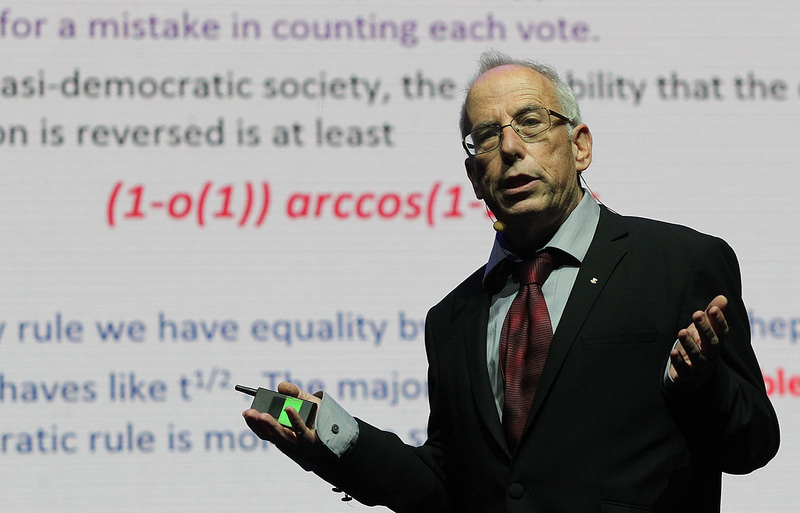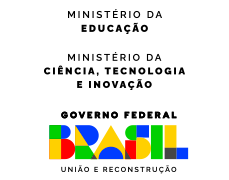Gil Kalai ponders possibilities of quantum computing in plenary

Opening the final morning of plenary speeches at the 2018 International Mathematics Congress, Gil Kalai presented the audience with two related problems, tackling computerized vote-counting systems and quantum computing possibilities. The talk, he told the audience, would consist of “two puzzles, four parts, six theorems and eight models”.
“My first question is how to find election voting systems that are not full of errors in counting votes,” he said. A good example, according to the Israeli mathematician, is the 2016 US presidential elections, where predictions on the outcome were famously off the mark.
Read more: Demystifying Langlands programs with sea serpents
Brazil’s ICM 2018: ‘All good things come to an end’
ICM goes to St. Petersburg, Russia in 2022
“My second question is if quantum supremacy is real, and how it can be realized.”
After moving through problems with electronic vote-counting systems for both two- and three-party scenarios using Boolean functions, the professor moved to Boolean circuits’ applications in computing and then onto quantum computing, Boson sampling and NISQ system sensitivity.
Kalai is Yale’s adjunct professor of mathematics and computer science in addition to holding the position of Noskwith Professor of Mathematics at the Hebrew University of Jerusalem. His research argues that constructing the quantum codes necessary for quantum computation will not be possible, and demonstrating quantum computational superiority in other quantum systems will also be impossible.
According to the professor, ‘noise’, or errors in the process, will affect the outcome of the process. There is always the possibility that a qubit become corrupted by noise when quantum computing executes an action, which Kalai believes will be impossible to counteract.
“Understanding quantum systems and potentially even the failure of quantum computers is related to the fascinating mathematics of noise stability and noise sensitivity, and its connections to the theory of computing,” the professor concluded in his presentation. “Exploring this avenue may have important implications to various areas of quantum physics.”
Although Kalai’s research on quantum computing and its obstacles has been somewhat controversial, provoking complaints from mathematicians with opposing views, he remains one of his discipline’s much-decorated academics. Most recently, Kalai won the 2012 Rothschild Prize in Mathematics, in addition to being awarded the Pólya Prize, Erdos Prize and Fulkerson Prize earlier on in his career.
The mathematician’s enthusiasm for the ICM shone through as he ended his presentation, praising the “excellent, passionate and diverse Brazilian mathematics” on display and voicing his hopes to be around to see the solutions to quantum computing’s noise problems at future ICMs.


